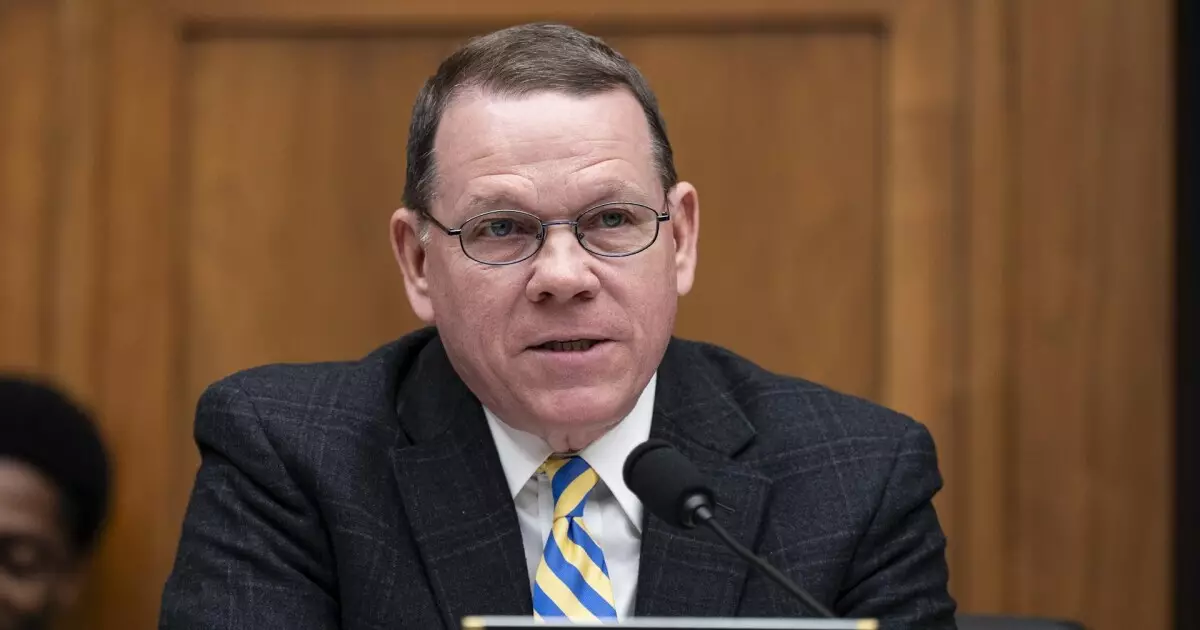The dynamics of U.S. infrastructure investment and tax policy are entering a critical phase as we approach a new congressional session. As the House Transportation and Infrastructure Committee gears up for action in 2025, the emphasis on bolstering roads and railways signals a significant shift in legislative priorities. The unfolding scenario is poised to bring substantial changes to both infrastructure development and fiscal strategies that may impact various sectors of the economy.
Representative Sam Graves, the incoming chairman of the House Transportation and Infrastructure Committee, has made it clear that the committee intends to hit the ground running upon convening. Emphasizing collaboration with former President Trump, Graves aims to align the committee’s objectives with Trump’s infrastructure agenda. This commitment to a bipartisan focus highlights a renewed vigor towards advancing long-term infrastructure initiatives—a necessity as America grapples with aging facilities and a pressing need for modern transportation networks.
Graves’ leadership was solidified after he overcame challenges from within the ranks, notably from Representative Rick Crawford. His tenure, although potentially limited by prevailing rules, has garnered a waiver indicating the Steering Committee’s support. The steadfast focus on infrastructure reflects broader national concerns centered on economic resilience, mobility, and public safety. With new investments almost guaranteed, stakeholders are eager to see how these plans will materialize and who will benefit the most—be it state governments, construction firms, or the general populace.
At the same time, the House Ways and Means Committee, led by Chair Jason Smith, is tackling significant tax issues, including a fierce defense of the Trump-era Tax Cuts and Jobs Act (TCJA). Smith’s leadership has emerged in a contentious atmosphere where partisan divisions are palpable—as demonstrated by his vocal critiques of current administration policies. His statements underscore a commitment to preserving substantial tax reductions that many argue have catalyzed economic growth in the preceding years.
However, the implications of extending the TCJA without identifying new revenue streams have raised alarm among fiscal analysts and budget watchers, who stress the importance of a balanced approach. The removal of certain benefits, such as the advance refunding of tax-exempt municipal bonds, showcases the complexities of navigating tax policy amidst competing interests. With multiple forecasters projecting potentially adverse effects on taxpayers if the provisions of the TCJA are allowed to lapse, discussions are likely to intensify as economic conditions evolve.
Compounding the infrastructure and tax discussions is the ongoing turmoil surrounding inflationary pressures. Recent statistics from the Bureau of Labor show core inflation rates stubbornly overshooting benchmarks, rallying criticisms against the current economic leadership. Politicians on both sides are gearing up for what is sure to be a heated debate over fiscal policy, especially as the expiration of the TCJA looms. Smith has been quick to underscore how a retraction of these tax cuts could negatively impact the average taxpayer, with projections indicating significantly higher tax liabilities for many Americans.
While the Republican leadership consolidates its stance on tax legislation, the forthcoming landscape is riddled with complexity. Democratic support persists for certain TCJA aspects, reflecting a challenging tug-of-war that seeks to balance growth, equity, and fiscal responsibility in an era of economic uncertainty.
Furthermore, the impending leadership transition within the House Financial Services Committee introduces additional variables into the mix. With Representative French Hill set to ascend as chair, discussions surrounding cryptocurrency regulations are anticipated to increase in intensity. As a self-identified moderate, Hill’s approach may further influence the regulatory landscape for digital assets, which has been a contentious subject among both lawmakers and the business community. The previous leadership under Representative Patrick McHenry laid the groundwork for addressing these emerging technologies, but the success of future regulations will hinge on a sophisticated blend of consumer protection and innovation encouragement.
In light of recent changes, the Senate Committee on Banking, Housing, and Urban Affairs will also undergo a leadership transformation, with Sherrod Brown’s departure marking a significant shift in influence. Senator Tim Scott’s rise as the ranking member sets the tone for upcoming conversations around financial policy, particularly as Republicans take control.
As we stand at this crossroads of infrastructure and tax policy, it becomes increasingly apparent that the upcoming congressional session will be pivotal. Infrastructural investment, fiscal responsibility, and regulatory oversight must navigate the turbulent waters of public opinion, economic realities, and political ambitions. The implications of these discussions will shape not only federal policies but also the everyday lives of Americans—a reality that renders the current climate particularly crucial for stakeholders at all levels. Henceforth, the path taken by lawmakers will define the trajectory of national growth and development for years to come.

